It looks like you're using an Ad Blocker.
Please white-list or disable AboveTopSecret.com in your ad-blocking tool.
Thank you.
Some features of ATS will be disabled while you continue to use an ad-blocker.
31
share:
I love hearing about new species being discovered. The number of discoveries here is amazing. The only thing that takes away the amazement is the
amount of plastic being found in our oceans, especially in the Antarctic where one would think there would be lesser of an impact from pollution.
As in many times with ocean life, the new creatures are fascinatingly weird, yet wonderfully beautiful.
Here's a few links and pictures to the story:
www.cbsnews.com...
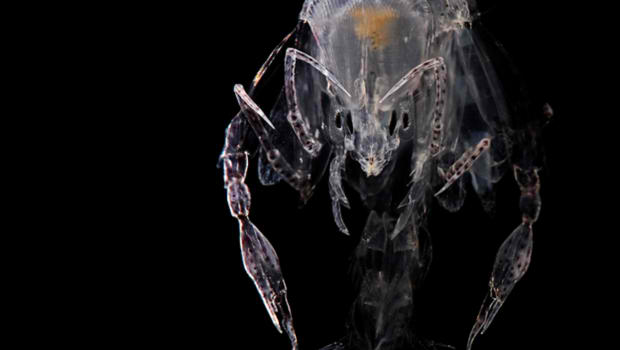
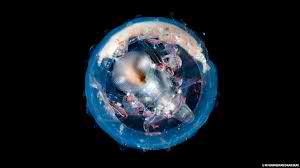
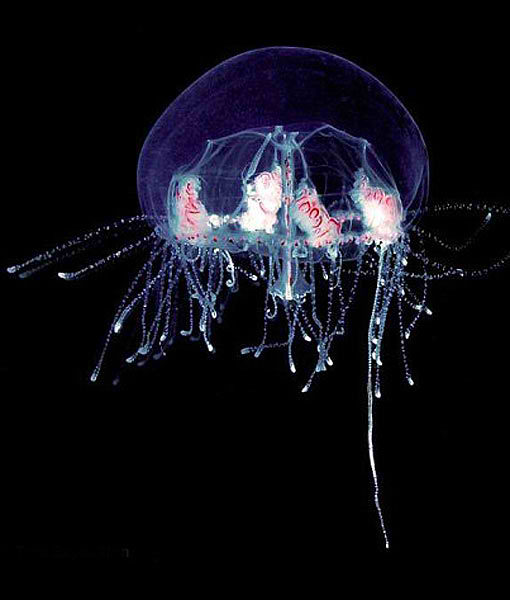
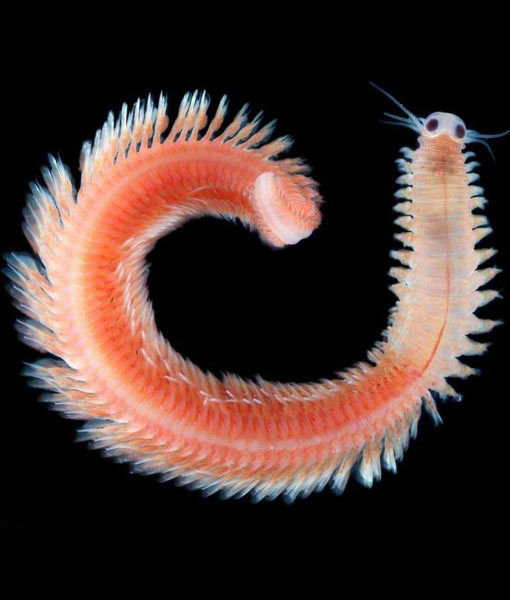
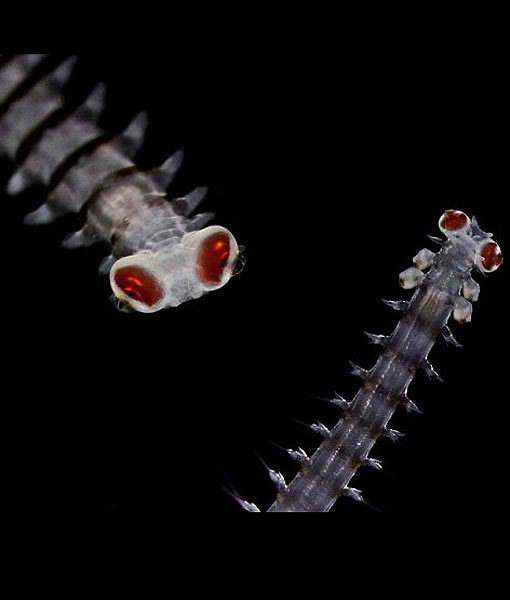
www.bbc.co.uk...
www.pawnation.com...=1
www.dailymail.co.uk... newsxml
As in many times with ocean life, the new creatures are fascinatingly weird, yet wonderfully beautiful.
Here's a few links and pictures to the story:
www.cbsnews.com...
A team of about 15 scientists on a research sailboat has just completed a two-and-a-half year, 70,000-mile voyage looking at some of the world's smallest, but most important, creatures: plankton.

The microscopic creatures at the bottom of the food chain play an over-sized role in the global ecosystem.
"There are all kinds of microscopic life that do incredibly important functions for managing the planet, ensuring the well-being of the planet, generating the oxygen we breathe, removing carbon dioxide from the atmosphere and generally maintaining this earth in a state that is habitable for us human beings," explains Tara Oceans scientist Chris Bowler.
The Tara team collected samples of sea-water and found, they say, about 1.5 million species of plankton - twice the number previously known to exist.
They found something else too: minute shreds of plastic. In fact, they found more plastic than plankton - especially in the Antarctic.
"We thought that areas like the Antarctic were pristine, being isolated, far away from humanity -- the fact that we found plastic debris down there - in terms of tens of thousands of pieces - is very sad, because this will hang around for thousands of years," says Bowler




www.bbc.co.uk...
The Tara research vessel has recently completed a 70,000-mile journey around the world's oceans collecting data on plankton biodiversity. The international team of scientists have discovered over one million new species on their voyage and produced amazing images of plankton using groundbreaking technology.
www.pawnation.com...=1
www.dailymail.co.uk... newsxml
The research provides a snapshot of marine micro-organisms - but points out how much plastic we dump in the ocean, with up to 50,000 plastic fragments per square mile within the Atlantic.
These plastics will not break down for hundreds of thousands of years, and can enter the food chain through fish, seabirds and other marine animals. The toxins can poison the ocean, and also find their way into humans through seafood.
edit on 27-9-2012 by isyeye because: (no reason given)
Here is another recent article concerning the overwhelming danger of the plastics in our oceans. This is something that our world will someday have
to deal with. The million new species recently discovered may not always exist if the levels of plastics in our oceans continue to increase.
ens-newswire.com...
ens-newswire.com...
Plastic nanoparticles released when plastic debris decomposes in seawater can have an adverse effect on sea animals, Dutch scientists have found.
Nanoparticles of plastic measuring just thirty millionths of a millimeter, invisible to the naked eye, are responsible for inhibiting feeding and growth in mussels, according to new research by Professor Bart Koelmans of Wageningen University and his research team.
They published a report of their investigations in the most recent issue of the journal “Environmental Toxicology and Chemistry.”
“The presence of plastic soup in the oceans is regarded as a big problem,” says Koelmans, a professor of water and sediment quality who is associated with IMARES, the Institute for Marine Resources and Ecosystem Studies, at Wageningen University.
The plastic soup is formed when plastic debris decomposes in seawater. “Such particles are probably also released from cosmetics and from clothes in the wash, subsequently entering the sewage system and surface waters and eventually reaching the sea,” Koelmans explains
edit on 27-9-2012 by isyeye because: (no reason given)
Thos is cool little critters...they have eyes even......it amazes me those little eyes.....
I bet theres equally interesting and similar creatures out in space too......maybe bigger tho..
I bet theres equally interesting and similar creatures out in space too......maybe bigger tho..
Why look for life on other planets when we have so much unseen and unknown down here. We can continue chasing the thought of other life somewhere else
and never find it and miss out on the chance to see many creatures down here that we're busy killing off unknowingly. If only us humans could use our
brains correctly.
edit on 28-9-2012 by FidelityMusic because: (no reason given)
The first plankton in the pictures is made from transparent plastic.
Just kidding.
Just kidding.
I wonder how they've counted the 1.5 million new plankton species. I mean, the 15 scientists must've known every single plankton species on Earth to
make sure that they aren't counted twice and given different names, lol.
reply to post by Kemal
Taxonomy
Lets see 2 million/700 days...hmmmm how much plankton per day is that ?
Taxonomy
Lets see 2 million/700 days...hmmmm how much plankton per day is that ?
When the world decided to use synthetic fibers to clothes ourselves, we opened the door to massive pollution.
Everytime we wash our clothes, we are releasing plastic fibers into the water, of course, this would eventually build up on the ocean floor.
The elephant in the room is HEMP. This is a sore subject but worth mentioning that hemp fiber was used for centuries as clothing and the other fiber needs of the world.
It was outlawed in the early 20th century in favor of oil consuming plastic fiber as a way for oil men to make even more money from their oil.
So, if you want to save the planet.....
~Rev
Everytime we wash our clothes, we are releasing plastic fibers into the water, of course, this would eventually build up on the ocean floor.
The elephant in the room is HEMP. This is a sore subject but worth mentioning that hemp fiber was used for centuries as clothing and the other fiber needs of the world.
It was outlawed in the early 20th century in favor of oil consuming plastic fiber as a way for oil men to make even more money from their oil.
So, if you want to save the planet.....
~Rev
the pic was
Originally posted by isyeye
this part is my response (maryhinge)
Now this type of pic always makes me think of the idea that
these could be infant biological ufos iknow it is a silly idea.
but i always think thisedit on 28/9/2012 by maryhinge because: (no reason given)
philwareedit on 28/9/2012 by maryhinge because: (no reason given)
flag/staredit on 28/9/2012 by maryhinge because: just so it makes more sense plus flag/star
Once some little creature figures out how to eat the plastic we may all have to kiss the future goodbye. It will be the pond/algae effect on a global
scale. Who knows what kind of effect it will have, but if this much plastic becomes a food source for some critter it might choke up the WHOLE food
chain. Wouldn't that be ironic.
new topics
-
Pentagon acknowledges secret UFO project, the Kona Blue program | Vargas Reports
Aliens and UFOs: 18 minutes ago -
Boston Dynamics say Farewell to Atlas
Science & Technology: 26 minutes ago -
I hate dreaming
Rant: 1 hours ago -
Is the origin for the Eye of Horus the pineal gland?
Philosophy and Metaphysics: 2 hours ago -
Man sets himself on fire outside Donald Trump trial
Mainstream News: 3 hours ago -
Biden says little kids flip him the bird all the time.
2024 Elections: 3 hours ago -
The Democrats Take Control the House - Look what happened while you were sleeping
US Political Madness: 3 hours ago -
Sheetz facing racial discrimination lawsuit for considering criminal history in hiring
Social Issues and Civil Unrest: 3 hours ago -
In an Historic First, In N Out Burger Permanently Closes a Location
Mainstream News: 5 hours ago -
MH370 Again....
Disaster Conspiracies: 6 hours ago
top topics
-
In an Historic First, In N Out Burger Permanently Closes a Location
Mainstream News: 5 hours ago, 14 flags -
The Democrats Take Control the House - Look what happened while you were sleeping
US Political Madness: 3 hours ago, 10 flags -
Thousands Of Young Ukrainian Men Trying To Flee The Country To Avoid Conscription And The War
Other Current Events: 16 hours ago, 8 flags -
A man of the people
Medical Issues & Conspiracies: 11 hours ago, 8 flags -
Man sets himself on fire outside Donald Trump trial
Mainstream News: 3 hours ago, 7 flags -
Biden says little kids flip him the bird all the time.
2024 Elections: 3 hours ago, 6 flags -
4 plans of US elites to defeat Russia
New World Order: 12 hours ago, 4 flags -
Is the origin for the Eye of Horus the pineal gland?
Philosophy and Metaphysics: 2 hours ago, 4 flags -
Sheetz facing racial discrimination lawsuit for considering criminal history in hiring
Social Issues and Civil Unrest: 3 hours ago, 3 flags -
Are you ready for the return of Jesus Christ? Have you been cleansed by His blood?
Religion, Faith, And Theology: 8 hours ago, 3 flags
active topics
-
The Democrats Take Control the House - Look what happened while you were sleeping
US Political Madness • 34 • : DBCowboy -
Do we live in a simulation similar to The Matrix 1999?
ATS Skunk Works • 28 • : JoelSnape -
Old School Punk
Music • 537 • : underpass61 -
Pentagon acknowledges secret UFO project, the Kona Blue program | Vargas Reports
Aliens and UFOs • 1 • : imitator -
Man sets himself on fire outside Donald Trump trial
Mainstream News • 28 • : KKLOCO -
Thousands Of Young Ukrainian Men Trying To Flee The Country To Avoid Conscription And The War
Other Current Events • 32 • : Xtrozero -
Biden says little kids flip him the bird all the time.
2024 Elections • 15 • : SideEyeEverything1 -
Boston Dynamics say Farewell to Atlas
Science & Technology • 1 • : BingoMcGoof -
In an Historic First, In N Out Burger Permanently Closes a Location
Mainstream News • 7 • : underpass61 -
12 jurors selected in Trump criminal trial
US Political Madness • 102 • : Xtrozero
31
